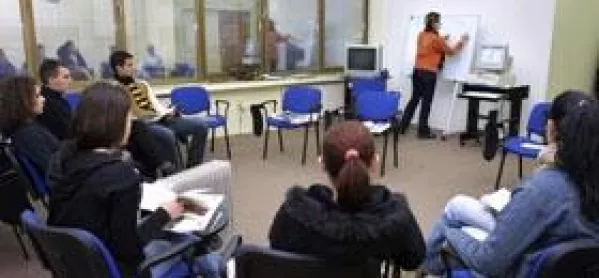A government scheme that sends out a tough message about raising attainment in “coasting” schools is being sidelined by local authorities angry about the derogatory label.
Scores of authorities have not picked out any such schools. Only 93 have been identified so far by the other councils that co-operated with a TES survey.
The scheme, now called Gaining Ground and costing pound;40 million, was launched in November. Authorities were given until the end of January to identify schools with good or reasonable results, but where pupils were not making the progress expected.
The survey of 110 of the 149 authorities found that 66 of them had not identified any schools. Some will not have any secondaries that meet any of the criteria. Others, including those which have identified schools, said they were angry at the use of the term “coasting”.
Barking and Dagenham, a borough in north-east London, said in a statement: “There is no obligation on the local authority to classify any of its schools as `coasting’ - and we have not done so.”
The concerns are shared by other local authorities, heads and unions. They come after the launch of the National Challenge scheme last June, which was aimed at schools with fewer than 30 per cent of pupils gaining five good GCSEs, including maths and English.
The use of the term “failing” schools and the threat of possible closure infuriated heads. Many believed it triggered a drop in the number of applications for places.
Now, faced with a similar media storm, Devon County Council said it had identified two schools, but said naming them “could cause unnecessary concern within the families at those schools and from prospective parents of children due to attend the schools”.
Education Leeds said schools involved in its scheme were volunteers and that it had renamed the programme Making Good Progress to avoid negative connotations.
Gaining Ground schools will be given extra support, including more school improvement partner days, training in assessment for learning for teachers and extra academic support for pupils.
The amount of money available for each school is still unknown, but several authorities said they had been offered pound;10,000 per school per year for two years.
The Gaining Ground document itself states that “coasting” is not a fair description of every school with relatively high attainment and below- average progression.
But it says there are schools for which the term is justified - those that have done little to improve attainment or progression over a number of years.
The document states: “Schools which are truly coasting are characterised by pupils with good results on entry who then seem to lose momentum and interest.”
But there are signs that the Department for Children, Schools and Families may now be softening its stance on the schools.
A spokeswoman refused to comment on the use of the word “coasting”, but said: “These schools are not failing schools - they will have acceptable, or sometimes even good results, but may not be fulfilling the potential of their pupils.
“Sometimes they may not be stretching their most able pupils, or perhaps not meeting the needs of their pupils who face difficulties.
“We know that schools like this can quickly see improvements if they have the right help and put in place the right systems.”




